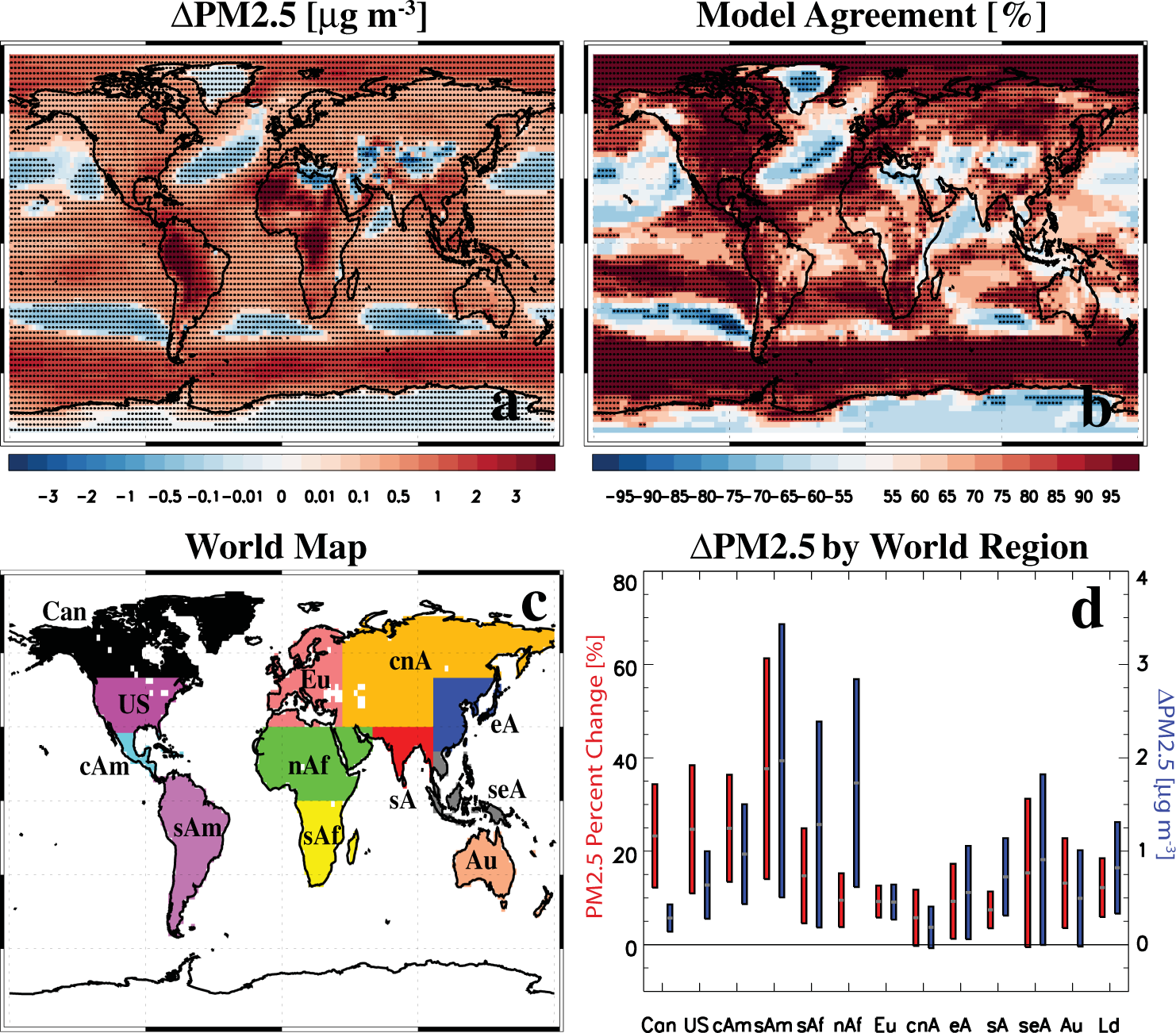気温が上がれば上がるほど、自然界からの大気汚染は増加する。 Hotter temps = more air pollution from natural sources
2023-02-28 カリフォルニア大学リバーサイド校(UCR)
研究では、将来の大気汚染の約2/3が植物から予想されるという。これは、植物が生成するBVOC(揮発性有機化合物)によって生じるものであり、これらが酸素と反応して有機エアロゾルを生成し、呼吸器の問題を引き起こす可能性があるためである。
将来の大気汚染の2番目に大きな原因は、サハラ砂漠のほこりであると予想されている。
研究者たちは、CO2排出を減らすことで将来の大気汚染を改善する可能性があることを示し、行動を促すことを望んでいる。
<関連情報>
- https://news.ucr.edu/articles/2023/02/28/breathing-going-get-tougher
- https://www.nature.com/articles/s43247-023-00688-7
将来予測される大気質の悪化は、温暖化した世界で、より豊富な自然のエアロゾルが原因であること The projected future degradation in air quality is caused by more abundant natural aerosols in a warmer world
James Gomez,Robert J. Allen,Steven T. Turnock,Larry W. Horowitz,Kostas Tsigaridis,Susanne E. Bauer,Dirk Olivié,Erik S. Thomson & Paul Ginoux
Communications Earth & Environment Published:02 February 2023
DOI:https://doi.org/10.1038/s43247-023-00688-7

Abstract
Previous studies suggest that greenhouse gas-induced warming can lead to increased fine particulate matter concentrations and degraded air quality. However, significant uncertainties remain regarding the sign and magnitude of the response to warming and the underlying mechanisms. Here, we show that thirteen models from the Coupled Model Intercomparison Project Phase 6 all project an increase in global average concentrations of fine particulate matter in response to rising carbon dioxide concentrations, but the range of increase across models is wide. The two main contributors to this increase are increased abundance of dust and secondary organic aerosols via intensified West African monsoon and enhanced emissions of biogenic volatile organic compounds, respectively. Much of the inter-model spread is related to different treatment of biogenic volatile organic compounds. Our results highlight the importance of natural aerosols in degrading air quality under current warming, while also emphasizing that improved understanding of biogenic volatile organic compounds emissions due to climate change is essential for numerically assessing future air quality.



